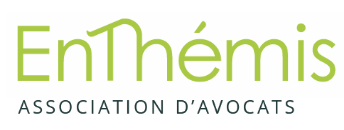The MGAs, these unidentified intermediaries
Coming from across the Channel, Managing General Agents (MGAs) are becoming increasingly prevalent in France. An insurance intermediation practice that is not recognized, but claimed by certain insurtech companies.
The acronym MGA is increasingly present in the French insurance world, particularly in the realm of insurtech, where some companies assert this status like Assurly, Luka, or Zego. Originating from the United Kingdom, these three letters stand for Managing General Agent, an expression difficult to translate into French. For Jérôme Goy, a lawyer at the firm, “the MGA operates throughout the value chain without technological disruption,” confirms Toufik Gozim, co-founder and CEO of Assurly. The insurtech company specializing in borrower insurance has decided to operate as an MGA while awaiting its insurer accreditation, which it hopes to obtain by the end of this year: “It’s a way for us to prepare to integrate all the technical and organizational processes to become an insurance company tomorrow.” “We were attracted to the MGA status because we wanted control over the product without entering into a broker/insurer relationship,” explains
Raphaël Vullierme,
co-founder and CEO of Luko. This insurtech company, which offers 100% online home insurance, claims around 150,000 policyholders. MGAs are particularly present in so-called niche risks. “Insurers trust MGAs because they know how to rate risks and have knowledge of the market in question,” adds Jérôme Goy.
An urgent need for status
MGA status? The term may seem legally improper. “The concept of MGA does not exist in French law, it cannot be included in a company’s statutes. In our Kbis, we have the status of broker. Because in France, and more particularly in the world of insurtech, you are either a broker or an insurer,” emphasizes Toufik Gozim. “It’s the same situation as a broker who holds exclusive mandates, for a product or a geographical area. These mandates are usually accompanied by various underwriting and/or management delegations,” notes
Henri Debruyne, president of Medi, a think tank dedicated to insurance distribution.
To operate in France, the MGA must register with Orias, the register of intermediaries. It can also operate through establishment freedom or the freedom to provide services. “Most register as insurance brokers,” specifies Jérôme Goy.
And as an intermediary, the MGA is subject to the obligations arising from this status. “Even though the MGA does not fall into any known intermediary category under French insurance law, it is undoubtedly an intermediary subject to the obligations of the IDD (duty of advice, information, etc.),” explains
Quentin Charluteau, a lawyer at the firm Simmons & Simmons. Nevertheless, the MGA acts as the insurer’s agent, not the insured’s, which distinguishes it from the broker, according to Quentin Charluteau: “One could say that the MGA status is closer to that of the insurance general agent, who is normally the exclusive agent of a company but who can also carry out a brokerage activity on the side.” Jérôme Goy elaborates: “Most major brokers have underwriting delegations from insurers to underwrite risks on their behalf, as MGAs do.
Except that with a broker, this activity is mixed with others. Whereas in the purity of the principle, the MGA only does that.” “I don’t understand why some are chasing after this status and what advantages they could derive from it,” comments Henri Debruyne, for whom the real question lies in the risk of conflict of interest between the broker’s posture – who acts on behalf of the client –
Remove the vagueness
“In fact, while the broker advises the insured while being remunerated by the insurer, the MGA is the insurer’s agent and is in principle paid by the latter,” specifies Quentin Charluteau. These are specificities that could justify recognition of this activity by French regulations.
